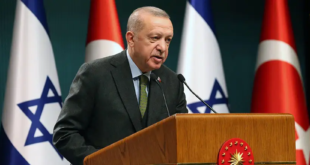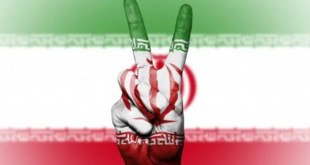(Reuters) – Iraq has sent army and police reinforcements to the southern city of Amara to prepare for a crackdown on Shi’ite militias. The operation will be the latest in a series of offensives by Prime Minister Nuri al-Maliki that are intended to stamp the government’s authority over areas once controlled by Shi’ite militias or Sunni Arab al Qaeda militants.
Following is a factbox on Amara and the earlier operations:
WHAT IS HAPPENING IN AMARA?
Amara, home to about 250,000 people, is a stronghold of anti-American Shi’ite cleric Moqtada al-Sadr, whose Mehdi Army militia has been the target of recent crackdowns in the southern city of Basra and the capital Baghdad. Amara is the capital of Maysan province, which borders Iran.
Maliki said on Saturday that “outlaws and criminals” had four days to hand over heavy and medium weapons in Maysan. Such arms usually include rocket propelled grenades and mortars.
Iraqi tanks have been on major streets and security forces have set up many checkpoints in Amara, 300 km (185 miles) southeast of Baghdad. Helicopters have dropped leaflets urging residents in the city to stay home. U.S. forces are likely to play a backing role, such as providing helicopter air support.
OPERATIONS BEGAN IN BASRA
In late March, Maliki launched an offensive in the southern city of Basra, the hub for nearly all Iraq’s oil exports. The offensive caught U.S. officials in Baghdad off-guard and got off to a rocky start when the Mehdi Army resisted fiercely. Iraqi troops had to call for U.S. air and ground support. Around 1,000 Iraqi soldiers deserted. Iraqi troops took control of Basra within a week after Sadr told his militia to stop fighting. Despite questions the operation raised about the capabilities of Iraq’s armed forces, Maliki won support from politicians across the country’s ethnic and sectarian divide for cracking down on Shi’ite militias. The prime minister himself is Shi’ite.
BATTLES RAGE IN BAGHDAD’S SADR CITY
The Basra crackdown sparked clashes in the Mehdi Army stronghold of Sadr City in eastern Baghdad that lasted for seven weeks. Hundreds of people were killed in fighting between militiamen and U.S.-backed security forces.
A truce agreed between Shi’ite factions in mid-May ended the fighting. Later that month 10,000 Iraqi soldiers moved into Sadr City unopposed. This allowed the government to impose its authority in an area generally outside its control since Maliki took office two years ago. The Iraqi army’s movement in Sadr City has been coordinated with Sadr’s office to avoid bloodshed. U.S. troops have stayed on the perimeter of Sadr City.
AL QAEDA TARGETED IN MOSUL
Maliki has been promising a major assault against al Qaeda in Iraq militants in the northern city of Mosul since the start of the year. The U.S. military has described the city, Iraq’s third largest, as al Qaeda’s last major urban stronghold. The scale of operations in Mosul picked up in mid-May when Maliki flew to Mosul for several days.
Major-General Mark Hertling, the commander of U.S. forces in northern Iraq, said in late May that U.S. and Iraqi troops had inflicted serious damage on al Qaeda in Mosul. Iraqi security officials say the group’s network has been broken in the city.
WHAT HAS BEEN THE IMPACT OF THE OPERATIONS?
The operation in Basra initially sparked a sharp spike in violence and raised the specter of a full-scale uprising by the tens of thousands of members of the Mehdi Army. But with Basra and Baghdad’s Sadr City under control, and security forces putting the squeeze on al Qaeda in Mosul, violence in Iraq has fallen to a four-year low. The Iraq-led operations underscore the Shi’ite-led government’s desire to take more control of security from the 150,000 U.S. troops in Iraq. Beyond the security gains, the operations have helped Maliki boost his image ahead of provincial elections due to be held on Oct 1. Maliki has said the crackdown on Shi’ite militias proved his government was not sectarian.
 Eurasia Press & News
Eurasia Press & News



